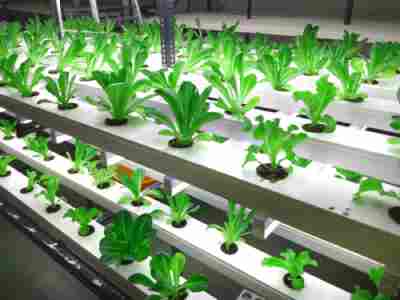Here are the Agritech innovations that have made a significant social impact, addressing critical challenges in agriculture and improving sustainability, productivity, and food security:
- Precision Agriculture with AI and Machine Learning
Innovation: AI driven systems analyze data from satellite imagery, soil sensors, and weather forecasts to optimize planting, irrigation, and pest control.
Impact: This technology improves crop yields, reduces resource waste, and minimizes environmental impact, making farming more efficient and sustainable.
- Autonomous Tractors and Robotics
Innovation: Self driving tractors and robotic systems perform tasks like plowing, seeding, and harvesting with precision.
Impact: These innovations reduce labor costs, increase operational efficiency, and support sustainable farming practices by minimizing resource use.
- Drones for Crop Monitoring and Management
Innovation: Drones equipped with highresolution cameras and spraying systems monitor crop health and apply fertilizers or pesticides precisely.
Impact: This reduces chemical usage, improves crop health, and enhances productivity while lowering environmental harm.
- Vertical Farming and Controlled Environment Agriculture (CEA)
Innovation: Stacked farming systems in controlled environments enable yearround crop production with minimal land and water use.
Impact: This innovation addresses urban food demand, reduces transportation emissions, and conserves resources, making fresh produce more accessible.
- Blockchain for Supply Chain Transparency
Innovation: Blockchain technology tracks the movement of agricultural products, ensuring transparency and traceability.
Impact: This builds consumer trust, reduces fraud, and supports fair trade practices, particularly for organic and sustainably sourced products.
- CRISPR and Genetic Engineering for Crop Improvement
Innovation: CRISPR technology is used to develop crops with enhanced traits like drought resistance, pest immunity, and higher nutritional value.
Impact: These advancements improve food security, reduce reliance on chemical inputs, and help farmers adapt to climate change.
- Renewable Energy Solutions for Sustainable Farming
Innovation: Solar panels and wind turbines are integrated into farms to generate clean energy.
Impact: This reduces reliance on fossil fuels, lowers operational costs, and contributes to a smaller carbon footprint.
- Farm Management Software and Mobile Apps
Innovation: Comprehensive platforms provide tools for financial tracking, inventory management, and predictive analytics.
Impact: These solutions streamline farm operations, improve decisionmaking, and enhance productivity for farmers of all scales.
- Microbial Solutions for Nitrogen Fixation
Innovation: Companies like Pivot Bio develop microbial solutions that replace synthetic nitrogen fertilizers, delivering nitrogen directly to crops.
Impact: This reduces greenhouse gas emissions, improves soil health, and lowers farming costs, aligning with sustainability goals.
- AIPowered Chatbots for Farmers
Innovation: AI chatbots like Farmerline’s Darli provide realtime agricultural advice, weather updates, and market information.
Impact: These tools empower farmers with actionable insights, improving productivity and resilience, especially in underserved regions.
- Advanced Irrigation Systems with Water Conservation Technologies
Innovation: Systems like drip irrigation and soil moisture sensors optimize water use.
Impact: This addresses water scarcity, improves crop health, and enhances yields while conserving water resources.
- Insect Farming for Sustainable Protein
Innovation: Companies like Ynsect produce insect based protein for animal feed and organic fertilizers.
Impact: This offers a sustainable alternative to traditional protein sources, reducing land use and emissions.
- Digital Twins and Generative AI in Agriculture
Innovation: Digital twins create virtual replicas of farming systems, while generative AI predicts outcomes and optimizes operations.
Impact: These technologies reduce costs, improve decisionmaking, and enhance sustainability by simulating realworld scenarios.
- Regenerative Agriculture Practices
Innovation: Techniques like no till farming, adaptive grazing, and chemical reduction restore soil health and biodiversity.
Impact: These practices enhance carbon sequestration, improve water retention, and promote longterm agricultural resilience.
- Methane Eating Microbes for Soil Treatment
Innovation: Windfall Bio’s microbes consume methane from soil, reducing emissions and improving soil quality.
Impact: This innovation supports sustainable farming by mitigating greenhouse gas emissions and enhancing soil health.
These innovations are transforming agriculture addressing global challenges like climate change, food security, and resource scarcity.







